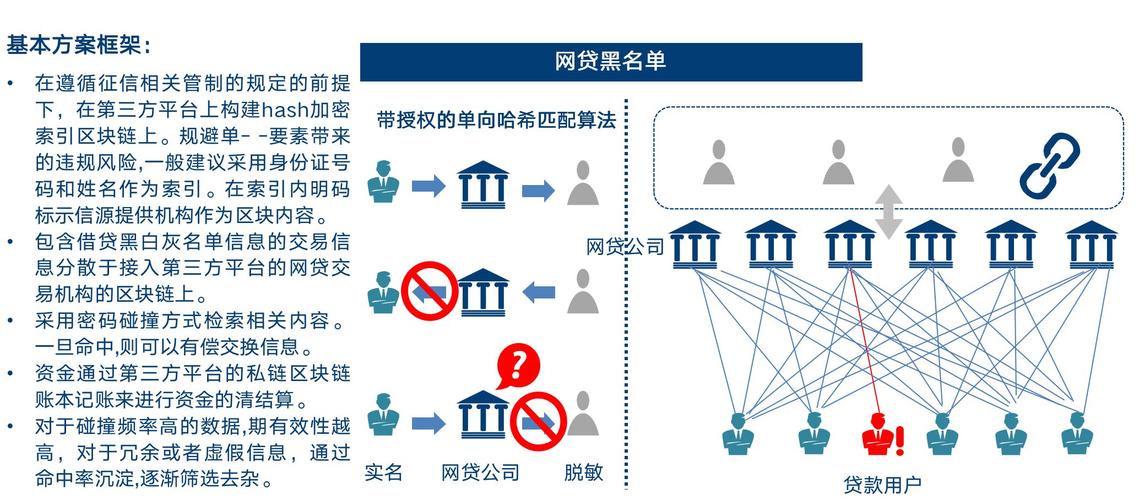Title: Implementing Effective Internal Management Systems in Blockchain Companies
In the rapidly evolving landscape of blockchain technology, the success of companies hinges not only on innovative products or services but also on robust internal management systems. Given the decentralized nature of blockchain and its potential for disrupting traditional business models, effective internal management becomes even more critical. Let's delve into key components and best practices for implementing internal management systems in blockchain companies:
1. Clear Governance Structure:
Establishing a clear governance structure is fundamental for blockchain companies. This structure outlines decisionmaking processes, roles, responsibilities, and escalation procedures. It ensures accountability and transparency across the organization. Embrace the decentralized ethos of blockchain by integrating mechanisms like DAOs (Decentralized Autonomous Organizations) where appropriate.
2. Smart Contracts for Operations:
Utilize smart contracts to automate and streamline various operational processes within the company. Smart contracts can facilitate functions such as payroll management, vendor contracts, and compliance protocols. Ensure that these contracts are secure, audited, and aligned with legal requirements.
3. Data Security and Privacy:
Given the sensitive nature of data in blockchain companies, prioritize robust data security and privacy measures. Implement encryption techniques, multifactor authentication, and access controls to safeguard critical information. Stay abreast of evolving cybersecurity threats and regularly update security protocols accordingly.
4. Transparent Communication Channels:
Foster a culture of transparent communication within the organization. Leverage blockchainbased communication platforms or decentralized messaging protocols to ensure privacy and security. Encourage open dialogue, feedback mechanisms, and knowledge sharing among team members.
5. Compliance and Regulatory Adherence:
Stay compliant with relevant regulations and legal frameworks governing blockchain technology. Establish compliance protocols for AntiMoney Laundering (AML), Know Your Customer (KYC) procedures, and data protection laws. Engage legal experts to navigate the complex regulatory landscape and mitigate legal risks.
6. Risk Management Strategies:
Develop comprehensive risk management strategies tailored to the unique challenges of blockchain companies. Identify and assess potential risks such as smart contract vulnerabilities, regulatory uncertainties, and market fluctuations. Implement contingency plans and risk mitigation measures to safeguard against adverse events.
7. Continuous Learning and Development:
Encourage continuous learning and professional development among employees. Provide training programs on blockchain technology, cybersecurity best practices, and emerging industry trends. Empower employees to acquire new skills and stay ahead in this dynamic ecosystem.
8. Decentralized DecisionMaking:
Embrace the principles of decentralization in decisionmaking processes. Distribute decisionmaking authority across teams or departments, empowering individuals to make informed choices within their areas of expertise. Emphasize consensusbuilding and democratic governance mechanisms.
9. Adaptability and Agility:
Cultivate a culture of adaptability and agility to respond effectively to market dynamics and technological advancements. Embrace iterative development methodologies such as Agile or Lean to foster innovation and rapid iteration. Stay flexible and open to pivoting strategies based on feedback and market insights.
10. Ethical and Responsible Conduct:
Uphold ethical standards and responsible conduct in all business activities. Emphasize integrity, honesty, and accountability in dealings with stakeholders, partners, and the broader community. Foster a sense of corporate social responsibility and contribute positively to societal development.
Conclusion:
Effective internal management is essential for the sustained success and growth of blockchain companies. By implementing clear governance structures, leveraging smart contracts, prioritizing data security, and fostering transparent communication, organizations can navigate the complexities of the blockchain landscape with confidence. Embrace a culture of compliance, risk management, and continuous learning to thrive in this dynamic ecosystem. Together, these principles lay the foundation for building resilient and innovative blockchain enterprises.
Implementing Effective Internal Management Systems in Blockchain Companies
In the rapidly evolving landscape of blockchain technology, the success of companies hinges not only on innovative products or services but also on robust internal management systems. Given the decentralized nature of blockchain and its potential for disrupting traditional business models, effective internal management becomes even more critical. Let's delve into key components and best practices for implementing internal management systems in blockchain companies:
Establishing a clear governance structure is fundamental for blockchain companies. This structure outlines decisionmaking processes, roles, responsibilities, and escalation procedures. It ensures accountability and transparency across the organization. Embrace the decentralized ethos of blockchain by integrating mechanisms like DAOs (Decentralized Autonomous Organizations) where appropriate.
Utilize smart contracts to automate and streamline various operational processes within the company. Smart contracts can facilitate functions such as payroll management, vendor contracts, and compliance protocols. Ensure that these contracts are secure, audited, and aligned with legal requirements.
Given the sensitive nature of data in blockchain companies, prioritize robust data security and privacy measures. Implement encryption techniques, multifactor authentication, and access controls to safeguard critical information. Stay abreast of evolving cybersecurity threats and regularly update security protocols accordingly.
Foster a culture of transparent communication within the organization. Leverage blockchainbased communication platforms or decentralized messaging protocols to ensure privacy and security. Encourage open dialogue, feedback mechanisms, and knowledge sharing among team members.
Stay compliant with relevant regulations and legal frameworks governing blockchain technology. Establish compliance protocols for AntiMoney Laundering (AML), Know Your Customer (KYC) procedures, and data protection laws. Engage legal experts to navigate the complex regulatory landscape and mitigate legal risks.
Develop comprehensive risk management strategies tailored to the unique challenges of blockchain companies. Identify and assess potential risks such as smart contract vulnerabilities, regulatory uncertainties, and market fluctuations. Implement contingency plans and risk mitigation measures to safeguard against adverse events.

Encourage continuous learning and professional development among employees. Provide training programs on blockchain technology, cybersecurity best practices, and emerging industry trends. Empower employees to acquire new skills and stay ahead in this dynamic ecosystem.
Embrace the principles of decentralization in decisionmaking processes. Distribute decisionmaking authority across teams or departments, empowering individuals to make informed choices within their areas of expertise. Emphasize consensusbuilding and democratic governance mechanisms.
Cultivate a culture of adaptability and agility to respond effectively to market dynamics and technological advancements. Embrace iterative development methodologies such as Agile or Lean to foster innovation and rapid iteration. Stay flexible and open to pivoting strategies based on feedback and market insights.
Uphold ethical standards and responsible
标签: 区块链公司内部管理制度内容 区块链企业管理 区块链公司治理

